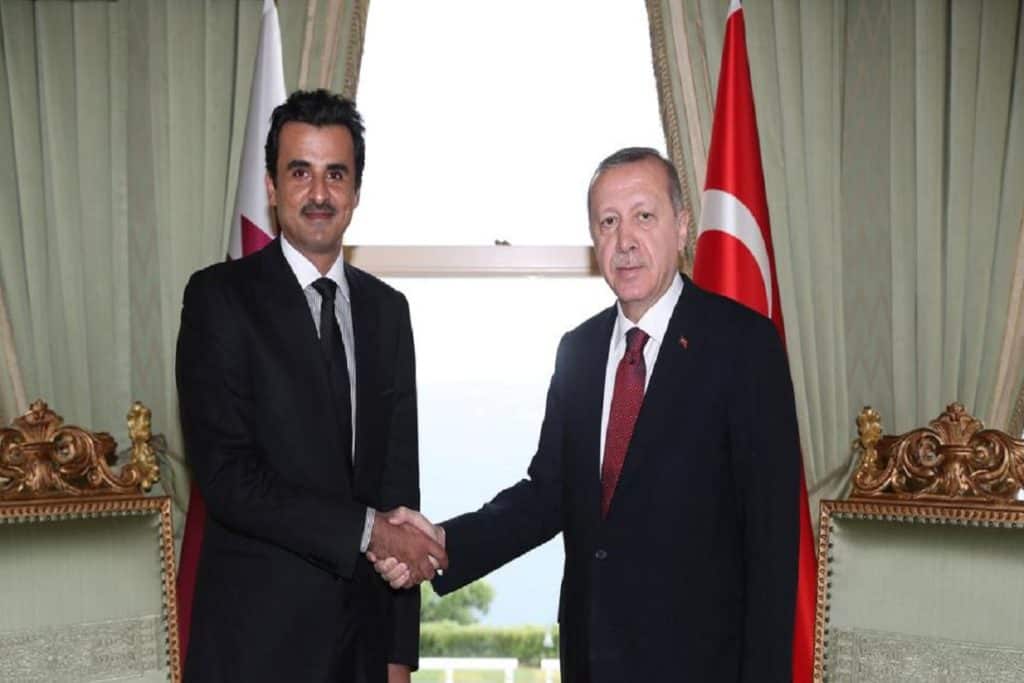By Denis Korkodinov
The Arab coalition consisting of Egypt, Saudi Arabia and the United Arab Emirates enters into open confrontation with the bloc of Turkey and Qatar, contributing to the strengthening of the union among the two countries.
The Doha and Ankara Alliance received additional impetus when Riyadh launched the anti-Qatar campaign. The Saudi asked Doha, among other things, to refuse the collaboration with Iran and Turkey, as well as to cease the cooperation with the Muslim Brotherhood.
Such a policy was counterproductive, since Qatar, contrary to the expectations of the kingdom, began rapprochement with Ankara and Tehran. And the attitude towards the Muslim Brotherhood remains the basis of the confrontation between the formed blocks of countries.
In Egypt, the Muslim Brotherhood took an active part in the political life of the country. For example, in 2005, representatives of the organization occupied the majority of seats in the national parliament, after which the Brotherhood was subjected to repression.
After the overthrow of President Hosni Mubarak, the time has come for the triumph of the organization, whose leader Mohammed Mursi was elected head of state. But, with the presidential power in Cairo in the hands of Abdel Fattah al-Sisi, the Brotherhood fallen down, and its supporters were arrested or killed.
The current president of Egypt, in its policy towards the Muslim Brotherhood, focused on the view of Riyadh and Abu Dhabi, which, despite their religiosity, strongly opposed the ideology of Hasan al-Bann. For this reason, Ankara stands in opposition to Saudi Arabia and the United Arab Emirates. For the same reason, Iran began a policy of rapprochement with Turkey.
Qatar’s interest in the Brotherhood arose from the fact that the Emirate was betting on the election of a consultative assembly that serves as parliament. These elections were necessary in order to suppress the centers of social protests in Doha and to secure the Qatari monarchy. The representatives of the fraternity were the only ones who were loyal to the emirate.
Therefore, Qatar, out of the fear that the political opposition could seize power in the country, and later overthrow the Emir, came out with the support of the Muslim Brotherhood . This allowed to level the effects of the domestic political crisis and suppress social protest. However, when power in Qatar passed to Tamim al-Thani, the election of the consultative assembly was postponed each time. And now, perhaps, these elections will be held only in 2022, but it is possible that even then they will be postponed indefinitely.
It is worth noting that in 2017, Ankara, Tehran and Doha agreed on the recognition of Iran as a transit trading point between Turkey and Qatar. Turkey resisted the boycott against Qatar. Moreover, when Washington introduced the first package of economic sanctions against Turkey, due to the case of Pastor Andrew Brunson, it was Qatar that provided financial assistance to Ankara in the amount of $ 15 billion.
It is expected that in the case of the next US sanctions due to the supply of Russian C-400 systems, Recep Erdogan will again rely on his Qatari partner. Therefore, the US pressure on Turkey may be ineffective, due to the fact that Doha can compensate for all the losses of the Turkish economy.
(The opinions expressed in this article are solely those of the author and do not necessarily reflect the views of World Geostrategic Insights).
Image Credit: TRTWorld/AA







